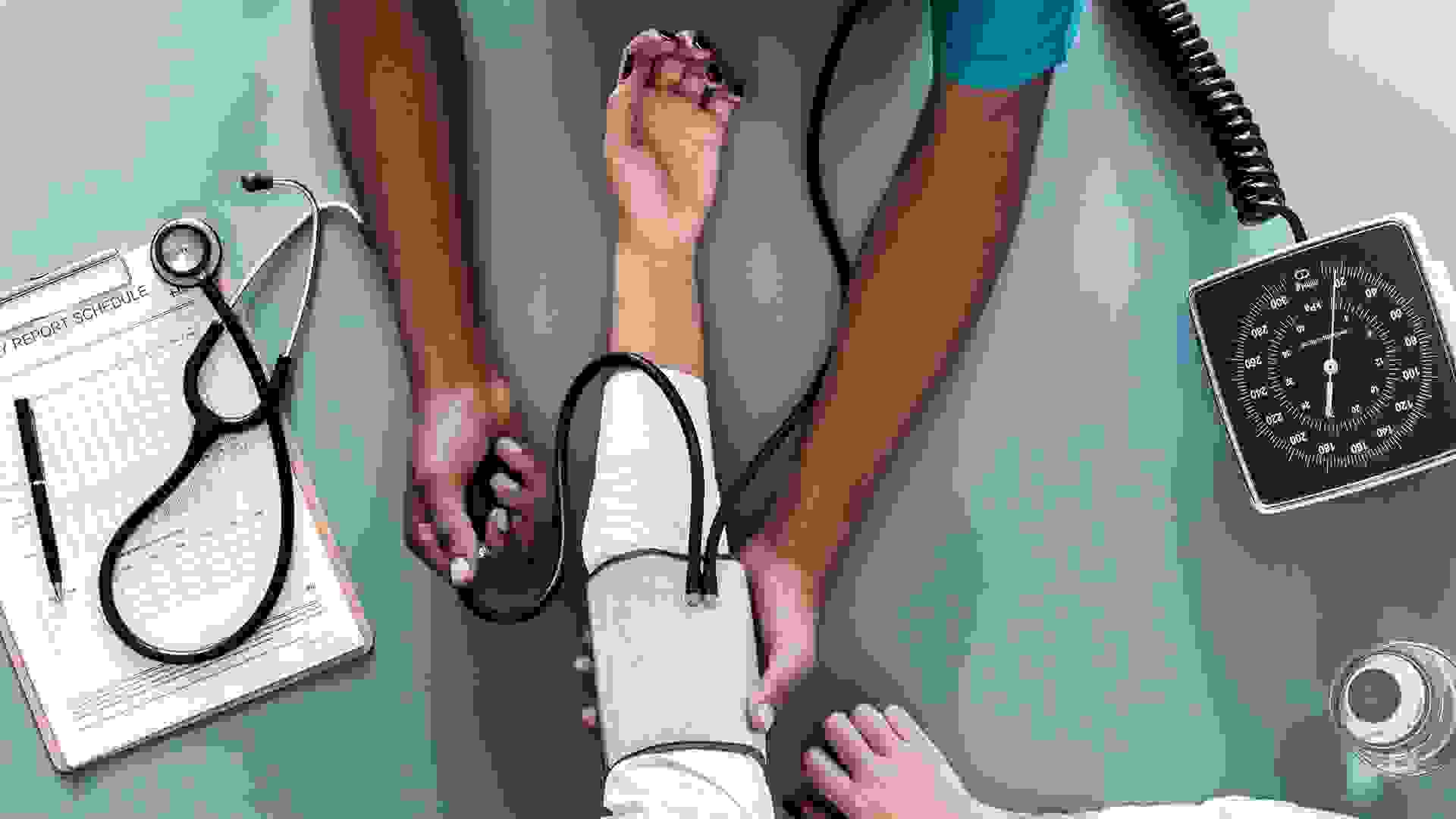How Much Money For High School Grad Gift
What Recent Grads Should Do With Their Money Now
Find out how to make the most of what you have.

Giving the class of 2020 or 2021 money advice might seem a bit tone-deaf. After all, many of those who graduated in the midst of a recession sparked by the coronavirus pandemic might be asking, "What money?" As of March, the unemployment rate among young adults was 11.1%, according to Statista. Although, this is a marked improvement from the 27.4% unemployment rate last April.
Learn:12 COVID-Proof Money Tips From Financial Planners
Budgeting Guide:How To Create a Budget You Can Live With
But for those lucky enough to have found a job, it's more important than ever to make the most of every paycheck. Getting off on the right financial foot can help you weather the current downturn. Take these steps now to build a strong foundation for your finances. Then it will be easier to get through tough times in the future.
Last updated: July 1, 2021

Give Every Dollar a Purpose
You might have had an introduction to budgeting while you were in school as you tried to stretch a limited income to cover books and the occasional pizza. Now that you're in the real world with more financial responsibilities, you need to give every dollar you earn a purpose. In other words, figure out where you want your money to go by creating a budget rather than waiting until the end of the month to see where it went.
You can use pencil and paper, a spreadsheet or a budgeting app such as Mint or Personal Capital to keep track of how much money you have coming in, what your expenses are and how to allocate cash left over after paying for necessities. It might take a few months to recognize which budgeting system works best for you, says Zina Kumok, a money coach at ConsciousCoins.com. "Budgeting is a skill," she says. "It can take a while to figure out how to do it well."
Find Out:What Is an Index Fund and Should I Buy One?

Keep a Money Diary
To ensure you stick to your budget, consider keeping a money diary. Tori Dunlap, financial educator and founder of HerFirst100k.com, recommends that you track where your money is going by writing down all discretionary purchases. Then, review those purchases to determine whether you spent money on things you actually used and enjoyed. Dunlap has a Cash Calendar on HerFirst100k.com that can be downloaded and used to track purchases and record how they made you feel.
Check Out:50 Ways To Live the Big Life on a Small Budget

Make Sure Your Checking Account Still Works for You
You might have opened a student checking account while in college that didn't require a monthly minimum balance or charge maintenance fees. But now that you've graduated, that account could transition to a traditional account with fees – fees that will eat away at your balance.
Kumok recommends switching banks if your checking account now has requirements you can't meet. "Nowadays, there are so many online banks that don't have these requirements and fees," she says. Among the best online banks with no-fee checking are Ally Bank and Discover Bank.
Learn More:22 Side Gigs That Can Make You Richer Than a Full-Time Job

Make Money by Switching Banks
Not only can switching banks help you avoid fees, but it also might allow you to boost your account balance. That's because banks often offer cash bonuses to attract new customers. So as you search for banks, look for those that are offering checking account promotions. Kumok says she made $1,000 in one year by switching banks a few times to take advantage of sign-up bonuses.

Keep More of Your Paycheck
Don't let Uncle Sam hang on to more of your paycheck than necessary. The amount of income tax withheld is based on the information you provide to your employer on Form W-4. The IRS has a Tax Withholding Estimator tool at IRS.gov that you can use to make sure the right amount of tax is withheld from your paycheck. You also can talk with your human resources representative at work when you fill out a Form W-4 to make sure you get your withholding right.

Create an Emergency Fund
If you have a paycheck, your first priority after paying for necessities is to set aside money in an emergency fund, says Carrie Schwab-Pomerantz, a certified financial planner and president of the Charles Schwab Foundation. "The goal is to have three to six months' of cash to cover essential expenses," she says. However, if you can save $1,000 to $2,000, that's a good start.
The pandemic is a good example of why you need an emergency fund. If you lose your job, you will need cash to cover your bills. Otherwise, you will have to rely on credit cards or loans from family and friends to get by, and you could end up digging a deeper hole for yourself.

Automate Savings
To build your emergency fund or save for any short-term goals, automate your savings. Dunlap recommends having a percentage of each paycheck automatically deposited into a savings account. "Too many people wait until the end of the month to save," she says. "By then it's gone." Automating savings was one of the top ways Dunlap was able to save $100,000 by the time she was 25.

Put Cash in a High-Yield Savings Account
Your emergency fund or short-term savings should be easily accessible in a savings account. However, not all savings accounts are created equal. The average interest rate on savings accounts nationwide is 0.06%, according to the Federal Deposit Insurance Corp. You can do much better than that with a high-yield savings account. Plenty of online banks offer savings accounts that pay 1% or higher. No, you won't grow rich off the interest, but it's better than nothing – or next to nothing.

Name Your Savings Accounts
If you have more than one savings goal, create separate savings accounts for each goal and name the accounts. For example, you could have an "emergency fund" account, "European vacation 2021" account or "first home" account. "Not only will that help you keep your money organized, but it's also psychologically harder to remove that money if you see it's for a specific goal," Dunlap says. Just make sure those accounts don't have fees that eat into your account balances.
Be Aware:40 Money Habits That Can Leave You Broke

Use Credit Wisely
Consider yourself fortunate if you've graduated from college without student loan or credit card debt. However, if you don't even have a credit card, you might need to get one to build credit. Lenders will look at your credit history and credit score when deciding whether to give you a loan (such as a car loan or mortgage) and what interest rate to charge on that loan. Using a credit card wisely can help you establish a credit history and put you on the path to a good credit score.
You might have to start with a secured credit card, which requires a deposit. Kumok recommends only using the card to pay small, recurring bills automatically each month – perhaps a cellphone bill or Netflix subscription. Then pay off the balance each month.

Pay Off High-Interest Debt
You might be wondering which debt payments take priority if you're saddled with both student loans and credit card debt. Your credit cards likely have higher interest rates than your student loans, so you should focus on paying off the high-interest debt first, Schwab-Pomerantz says.

Make Student Loan Payments – Even If You Don't Have To
If your only debt is federal student loans, you could take advantage of current federal relief to pay off your debt faster. Interest isn't being charged on federal student loans through Sept. 30, so your payments will go entirely toward paying off your principal (the amount you borrowed) instead. The more of the principal you pay off before interest starts accruing again, the faster you'll pay off your loan.

Get Relief If You're Struggling With Student Loans
The federal relief provided by the last few stimulus measures doesn't apply to private student loans. So if you're struggling to make payments, reach out to your loan provider to see if it offers any programs to help with payments – such as forbearance that lets you temporarily postpone payments.
If you have federal student loans and expect to have trouble making payments once the forbearance period ends, you might qualify for one of the several repayment options that are available that can reduce your monthly payments. Visit StudentAid.gov to explore your options.

Start Investing In Your Future Now
Retirement is likely decades away for you. But the sooner you start investing for your future, the easier it will be to have enough stashed away for a comfortable retirement.
For example, by starting in your 20s, you could have a large enough retirement nest egg by saving 10% to 15% of your income annually, Schwab-Pomerantz says. If you wait until your 30s to start investing for retirement, you'd need to save 15% to 20% of your income annually. If you wait until your 40s, you'd need to save at least 30% of your income annually to have a comfortable retirement.

Take Advantage of Your Workplace Retirement Account
The easiest way to save for retirement is through a workplace retirement plan such as a 401(k). Your contributions will be deducted automatically from your paycheck, which also will lower your taxable income. (In other words, you'll pay less in taxes by contributing to a 401(k).)
Maybe you can't afford to set aside 10% to 15% of your income, but you should contribute at least enough to get any matching contribution your employer offers. Employers that match contributions often will contribute $1 for every $1 an employee contributes to a 401(k), up to 6% of the employee's annual salary, while some will match a partial amount, such as 50 cents for every $1 employee contribution. It's free money you could be missing out on if you're not putting in enough to get your employer's full match.
Discover:Are You Spending More Than the Average American on 25 Everyday Items?

Opt For the Roth
If your employer gives you the choice of contributing to a traditional 401(k) or Roth 401(k), Schwab-Pomerantz recommends opting for the Roth. You won't get the tax benefit upfront (contributions come out of your paycheck after taxes). But you can withdraw the money tax-free in retirement. Withdrawals from traditional 401(k)s, on the other hand, are taxed as regular income.
If you don't have a workplace retirement plan or are self-employed, you could open a Roth IRA and contribute up to $6,000 in 2021. You can open a Roth IRA account through companies such as Charles Schwab, Fidelity and Vanguard.

Boost Retirement Account Contributions Throughout the Year
If you don't have much room in your budget to pay bills, build an emergency fund and save for retirement, remember that you can boost retirement contributions over time. Dunlap recommends increasing your 401(k) contribution by 1% every six months. "See if you're comfortable with that," she says. "Chances are, you won't even feel that 1%."
![]()
Choose the Right Investments for Your Retirement Account
When Schwab-Pomerantz opened an IRA at age 23, she says she asked her dad, Charles Schwab – founder of financial services company Charles Schwab – to suggest stocks she should invest in. "I was completely disappointed that he said pick two mutual funds from our marketplace," she says.
Mutual funds – which are collections of stocks, bonds or other securities – can be less risky than individual stocks and a better way to invest for retirement. Schwab-Pomerantz recommends opting for a target-date fund if it's an option in your workplace benefit plan. This type of mutual fund typically shifts the investments in its portfolio over time from stocks when you are younger to bonds as you are closer to retirement age.
Next Up: 20 Investments That Are Recession-Proof

Don't Let Market Swings Scare You
Yes, the stock market has been on a roller-coaster ride lately. But that doesn't mean you should stop contributing to your retirement plan every time the stock market drops or stick to less-risky investments such as bond funds. "As a young person, you have time on your side," Schwab-Pomerantz says. "You have time to ride the short-term market losses. You can also benefit from the growth stocks provide that bonds and cash do not."
Even during times of stock market volatility, continue investing the same amount in your retirement plan every month. "On days that the market is high, you'll buy fewer shares," Schwab-Pomerantz says. On a day when the market is down, you will be buying more shares at a cheaper price. Over the long term, she says, you're lowering the average cost of your investment.

Protect Your Finances With Health Insurance
You can remain on a parent's health insurance plan until age 26 – which can help you avoid the cost of coverage if your budget is limited. But if that's not an option for you, don't forgo health insurance coverage to save money. That plan could backfire if you need emergency care and have to pay tens of thousands of dollars out of your own pocket for a visit to the ER.
"If you are struggling financially, buy a high-deductible plan with lower premiums," Kumok says. You'll have to pay more of your health care costs on your own before your insurance kicks in (until you meet the deductible, that is), but your monthly payments will be lower than for a traditional health insurance plan.

Take Advantage of a Health Savings Account
If you sign up for a high-deductible health insurance plan through your employer, you likely will have the option to contribute to a health savings account (HSA). Contributions to an HSA can come out of your paycheck before taxes (just like retirement account contributions), and the money can be withdrawn tax-free to pay for health insurance deductibles or other qualified medical costs.
Some employers even will make contributions to employees' HSAs. Kumok says the HSA contributions she got from one employer were enough to cover the cost of her doctor visits one year.

Protect Your Belongings
If you're renting an apartment, pony up to pay for renters insurance. "Renters insurance is the best deal," Kumok says. "It's ridiculously cheap, and it protects your stuff is something happens." If someone were to break into your apartment and steal your belongings or if a fire broke out, renters insurance would cover your loss.
You can keep down the cost of renters insurance – which already is low – by getting coverage from the same company that provides your auto insurance, Kumok says. Insurance companies typically offer multi-policy discounts.

Invest In Yourself
"Learning doesn't end when you leave school," Dunlap says. "You constantly have to be thinking, 'How can I gain more skills?'" That doesn't mean you have to spend a lot to get a graduate degree. There are plenty of free and low-cost courses available online.
If you're willing to spend a little, you might gain more skills that will make you more marketable or learn how to start a side hustle that will give you a second source of income that can help recession-proof your finances.

Invest In Learning About Money
Despite everything you learned in college, you likely weren't taught the basics of personal finance. So if you want to be better with money, consider spending a little to learn from the experts, Dunlap says. You can find courses on everything from budgeting to investing online. And there are plenty of books – such as "Broke Millennial," "Clever Girl Finance" and "You Only Live Once: The Roadmap to Financial Wellness and a Purposeful Life" – that can teach you the basics.
You can boost your knowledge about money for free by borrowing books from your local library. There also are plenty of sources of free personal finance information on the Web, including GOBankingRates.com. The more time you invest in learning about money, the better you'll be at managing it.
About the Author
How Much Money For High School Grad Gift
Source: https://www.gobankingrates.com/saving-money/savings-advice/recent-grads-should-money-now/
Posted by: wickershambetwou61.blogspot.com

0 Response to "How Much Money For High School Grad Gift"
Post a Comment